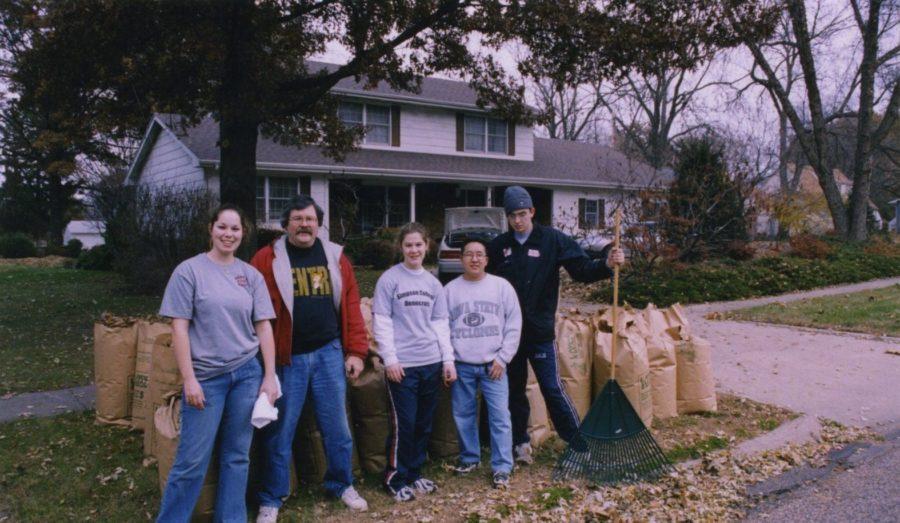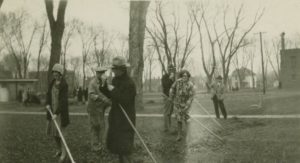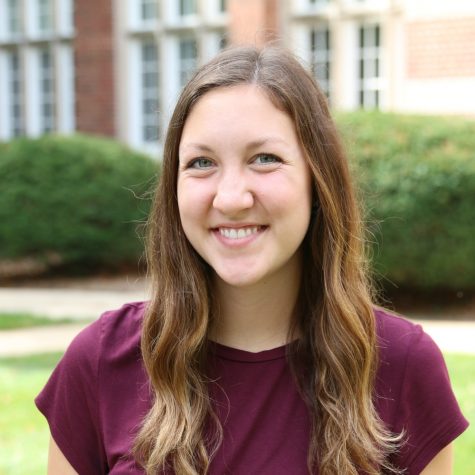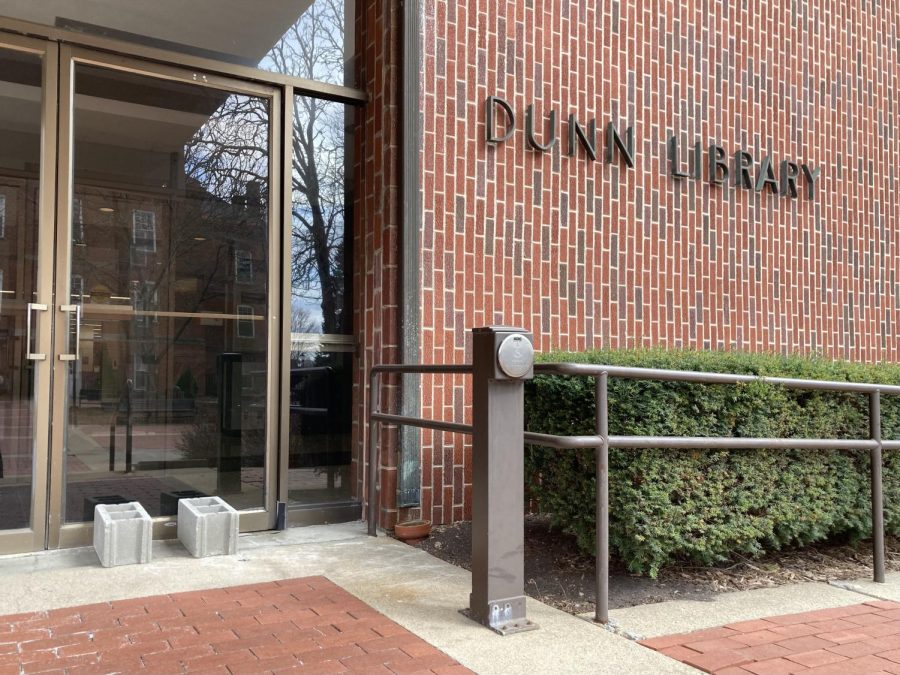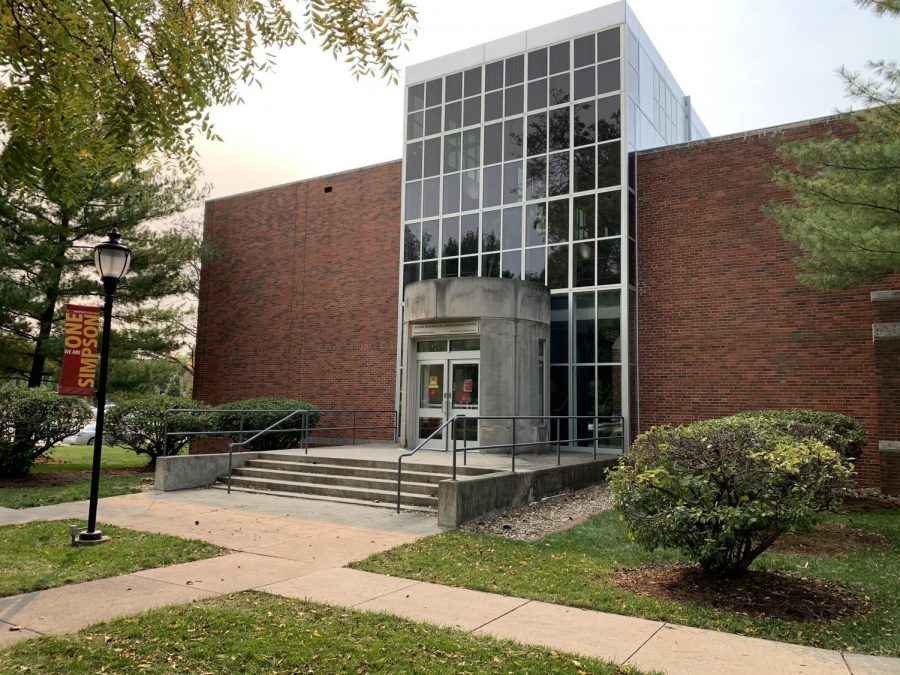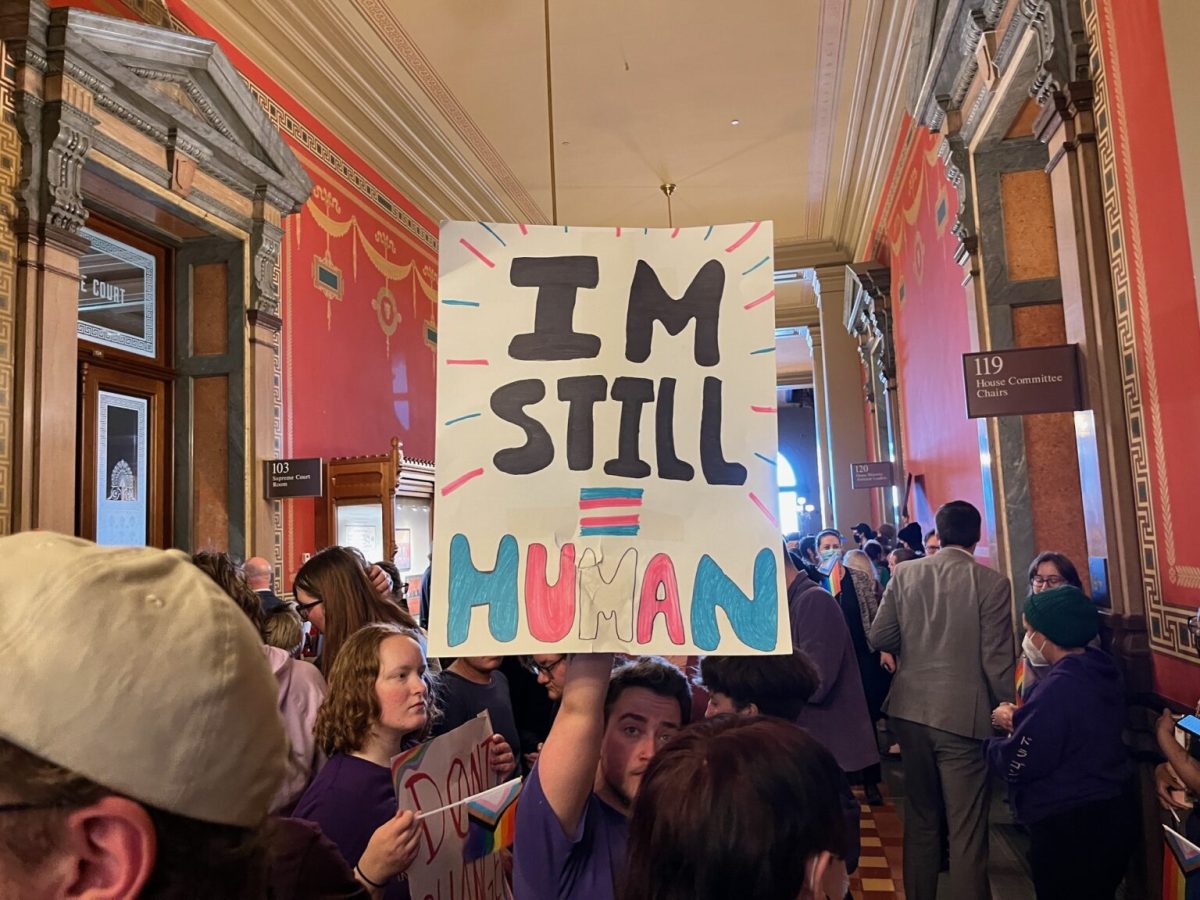Simpson College continues 128-year tradition of Campus Day
April 3, 2017
INDIANOLA, Iowa — Campus Day is Wednesday, and it’s one of the longest-running Simpson College traditions that started in 1889 with a lack of maintenance staff and the desire to bring more pride to campus, according to Joseph Walt’s book, “Beneath the Whispering Maples.”
The book said in the late 1800s Simpson had only one faithful janitor, Silas Van Liew, because they could not afford a maintenance staff. Buildings were in poor condition with leaking roofs and peeling wallpaper, but grounds were even worse from severe weather, careless students and stray animals.
Fletcher Brown, a neighbor to Simpson whose hogs ran loose, called his hogs the “sanitation department,” because they ate everything in sight, thus keeping the grounds clean.
Campus Day came to be an annual effort to keep campus looking presentable, be more inviting and give the college a more prestigious look for visitors, according to the book.
“Surprisingly, it’s one of those traditions that have really hung on, that, for the most part, students look forward to,” said Rich Ramos, associate dean of students who has been with the college for 27 years.
Campus Day has evolved throughout its 128 years.
The typical Campus Day during the 1910s included students working on the grounds in the morning, going to chapel, then picnicking for lunch, according to library archives. After faculty vetoed Campus Day in 1914, students still skipped class and picnicked, referring to it as “Flunk Day.”
Campus Day followed suit with national events, too, according to the library archives. During the prohibition era, students went out to the movies the night before. Also, during World War II, nearly all the men on campus went to war, so “Campus Day was less fun because there were fewer picnics because there were fewer boys,” according to Walt’s book.
Campus Day morphed a bit, Ramos said. It used to be an all-campus day with students mulching, painting and cleaning, then it changed to more of a community service project by going out to neighborhoods and cleaning people’s yards.
Today, Campus Day is a combination of both on-campus work and community service. Some groups, like sports teams, have designated places where they like to help out each year.
Last year the football team helped out at Wesley Woods Camp and Retreat Center, and the wrestling team removed litter on a section of Hwy 65-69 outside of Indianola, for example.
Tyler Unruh participated in Campus Day last year with his fraternity brothers in Alpha Tau Omega.
“It was a great time to get to spend with my brothers in ATO,” Unruh said. “We all got to hang out, have a good time and better the local community.”
Ramos said a major change was announcing the date of Campus Day beforehand. Originally, the date was made up by a committee of employees and one student, usually the student body president, and only that committee knew when the day was.
Simpson employees did a rousing wake up of students in their residence halls on the morning of Campus Day to inform students.
Student participation also changed with time. In the 1920s, the library archives said the faculty took attendance, and those who didn’t participate in Campus Day were marked for an unexcused absence.
Today, students are not required to participate, though Ramos said last year was one of the highest attended Campus Days with nearly 600 students on 73 registered teams.
Ramos said the day is a campus tradition with the expectation that students should participate at least once during their time here.
The day changed because Simpson now has a larger maintenance staff, and Ramos said it has also changed because of culture.
“Students that are coming in now are not as into service as they used to be, so that aspect is not as big of a deal,” Ramos said. “Though that is concerning for the overall culture, I’d like to think we have enough folks here who have been involved with it enough through the years that it’s one of those traditions that will hang on, because that’s just who we are, and that’s what we do as a community.”
The original benefit of Campus Day was to increase the pride of campus, according to the book. Ishaya David, senior class president in charge of Campus Day, said the tradition helps students learn valuable life skills.
“I think it’s great because college is not just a place where you go to class and learn things from textbooks, it is also a place where you learn life skills, like how to be an active member of a community,” David said. “Campus day gives Simpson students that learning opportunity.”
Unruh said, “For some people it’s definitely an excuse to sleep in or get free food if you volunteer at the right place.”
David said he would like to see changes. He thinks it would be awesome if Campus Day grows to be an opportunity where members from the community get to meet and interact with students while working together.
Ramos said he would also like to revert back to earlier times when Campus Day was more of a full-day event including a picnic in the evening.



